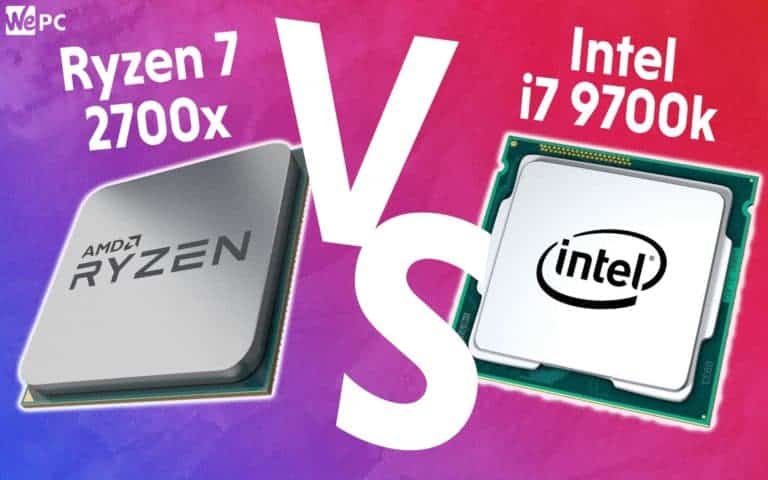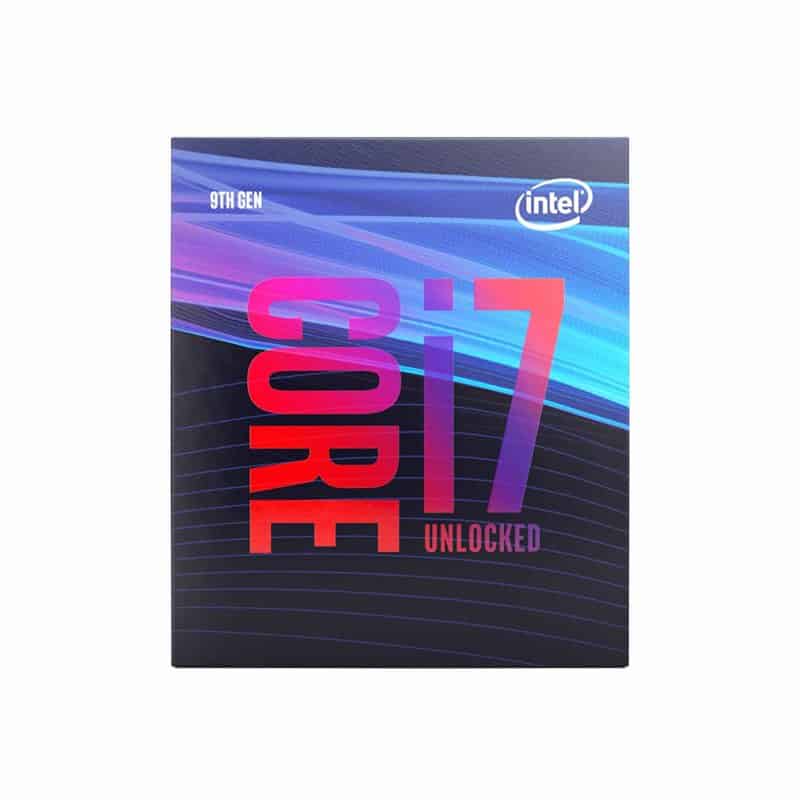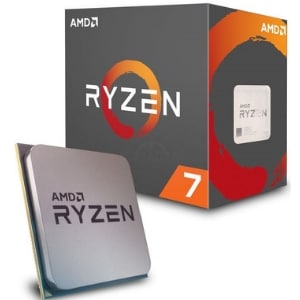Ryzen 7 2700x vs i7 9700k
In this article we review and compare two of the best 8-core CPUs that are currently available, the 2700X and the 9700K.

Whilst 6-core CPUs may have been the hot topic not so long ago, 8-core CPUs have bumped them down to the entry-level to mid-range market. Anyone looking for a higher-end processor will now need to look towards getting one with an increased core and thread count so it can handle the higher demands of modern game titles.
If like so many people, you’re looking to upgrade your current CPU but you can’t seem to navigate the sea of options that are currently available, we’re here to introduce you to (and help you get to know them inside and out) the Ryzen 7 2700X and the Intel Core i7 9700K.
Battle of the Brands - AMD Vs. Intel
It’s a war that first dates back to 1969 when AMD was originally birthed into existence by a group of former Fairchild Semiconductor employees. This was a company that played a huge role in the development of integrated circuit technology, so who better to start a company that would go on to become one of the leading names in the gaming industry?
Unfortunately, another group of similarly like-minded people – so like-minded, in fact, that they had also formerly worked for Fairchild Semiconductor – had already created a company called Intel a little under a year before. So, you can see and probably understand where the intense rivalry stems from between these two competitors.
Intel held their initial advantage in the beginning, but then AMD brought out their first range of Ryzen CPUs to rival them and they’ve been back and forth ever since, taking turns at being the brand that has the best computer processor to offer to gamers.
Cores and Threads
Individually, the cores of your CPU are responsible for reading and responding to computer instructions as you give them, therefore collectively, they’re one of the most important things to consider when you’re thinking about upgrading to a new computer processor.
From 4 to 6, to now 8 cores, developments in the core technology and the gaming industry as a whole keep improving. Where 6 cores were once the pinnacle of computer processing, it’s now considered an amount you could get by on, whereas 8 cores are more desirable.
Both the Ryzen 7 2700X and the Intel Core i7 9700K fall under this category, each being equipped with 8 cores. It’s when you start to look at their threads that things start to get interesting, as this is where they begin to show their differences.
Where the 9700K has only 8, the 2700X doubles it with 16 threads and a simultaneous multithreading core design. Intel has its own variation, which is called hyper-threading. AMD’s design can carry out multiple threads in a single process simultaneously, whereas Intel’s hyper-threading is able to turn a single physical processor into two virtual ones.
It’s hard to say which is definitively better than the other, as both have their own advantages and disadvantages. Single-core processing can be great for gaming as it’s perfect for running specific tasks or applications, and multithreaded cores are particularly useful for multitasking, by comparison, so you can have more than one application running at the same time as your game without it negatively affecting the performance too much.
Clock Speeds
Clock speed is another incredibly important feature when it comes to computer processing units, as this has a great impact on the component’s overall performance. Better clock speeds will ensure that your CPU is processing instructions and information more efficiently so you’ll be less likely to experience any lag during your gaming.
To compare them, the Ryen 7 2700X has a base clock speed of 3.7 GHz and the Intel Core i7 9700K nudges in at 3.8 GHz, so although the stock speeds are similar, Intel’s CPU just about wins this round. However, things change when you begin to boost your CPU.
Looking at their maximum turbo frequencies, the i7 9700K can reach up to 5.1 GHz which is much faster than the 7 2700X, and its maximum turbo frequency of 4.3 GHz. This jump-up in speeds will see a correlating increase in performance quality, but really it’s the cores that will have the most influence over your gaming experience.
Architecture
The Ryzen 7 2700X features AMD’s Zen+ architecture, which although great at the time has since been succeeded by the more recently released Zen2 architecture. It does offer a reasonable step up from the former Zen architecture, but how does it stand up to the Intel Core i7 9700K?
Comparably, Intel’s new Coffee Lake architecture doesn’t deliver as much of an improvement on the earlier versions, such as Skylake and Kaby Lake, even using the same 14 nm process size. They’re also only compatible with newer motherboards, so if yours is looking a little old you may need to consider upgrading if you want it to work with this CPU.
Intel’s 9th Generation core architecture is compatible with DDR4-2666 memory speeds, but this doesn’t quite live up to Ryzen’s Zen+ standards. For the gamer who is obsessed with overclocking, you’ll get more out of the Intel Core i7 9700K due to its improved stability when playing at higher frequencies, so it depends on what you’re looking to get out of your CPU.
Multi-Tasking
If multitasking is what your choice ultimately comes down to, meaning if this is at the top of your priority list in terms of features you want from your computer processor, then the Ryzen 7 2700X wins hands down. The multi-threaded cores and thread count means it’s able to handle the demands of multiple applications simultaneously, so you can stream your favorite twitch clips while you’re gaming.
Intel’s hyperthreading and its single-core design can’t quite keep up with the demands of modern game titles in the same way, but when it comes to handling a single-core workload the Intel Core i7 9700K starts to overtake the 2700X, offering better performance.
If you think you’re likely to want to run multiple programs in the background while you’re gaming, such as streaming or playing your favorite music, then you’d benefit more from a CPU with additional cores as this can better handle the job of multitasking.
Comparison
AMD definitely has the upper hand in terms of gamer-friendly features, but in a side-by-side comparison, it’s difficult to definitively choose one of these CPUs over the other, as they both have a lot to offer in their own unique way. Essentially, this battle of the CPUs comes down to you and what you’re hoping to get out of it. For the gamer who plans on using their gaming computer for solely this purpose, the Intel Core i7 9700K is noticeably quicker and will deliver faster clock speeds for smoother gameplay.
The integrated UHD Graphics 360 card that the 9700K comes with is an additional bonus, but it would need to be switched out for specific hardware if you’re a more serious gamer who’s looking to optimize your processor’s performance. It has fewer limitations, so if your collection includes a variety of games, you can comfortably play them all in good quality with Intel’s CPU, whereas GPU-bound games such as Shadow of the Tomb Raider and World of Tanks would suffice with a single-core design processor.
However, it is the more expensive option of the two, and it delivers speeds that are similar to the preceding Intel Core i7 8700K for an extra $40. If you’re a less experienced gamer or someone who will be using their PC to run additional applications alongside your games then you’ll benefit more from the multitasking ability of the Ryzen 7 2700X.




